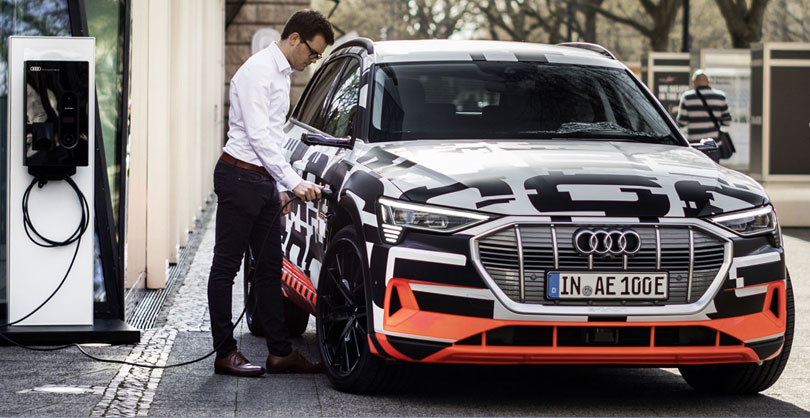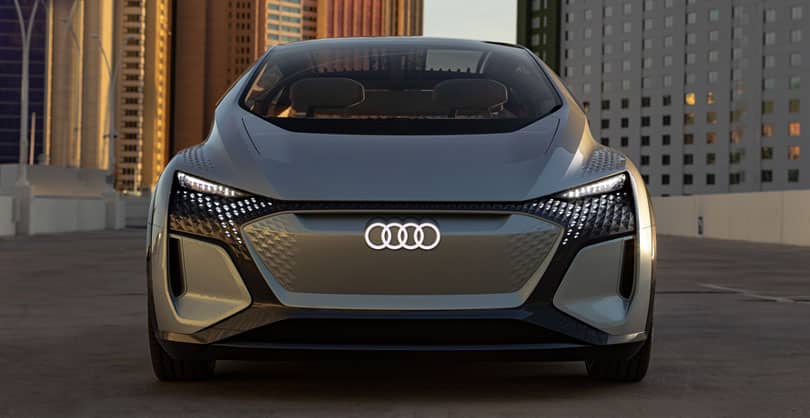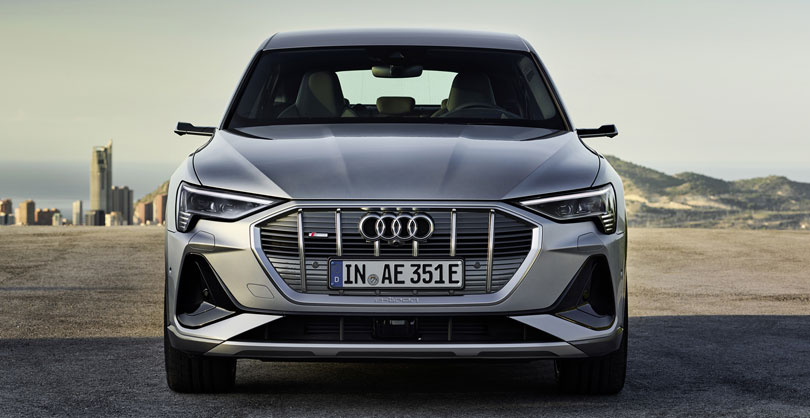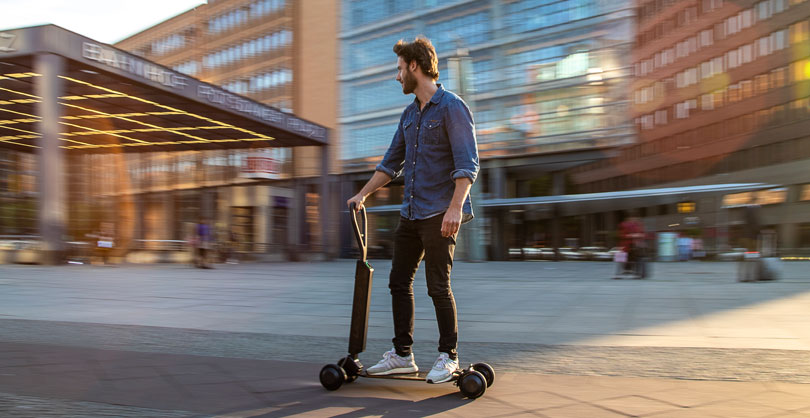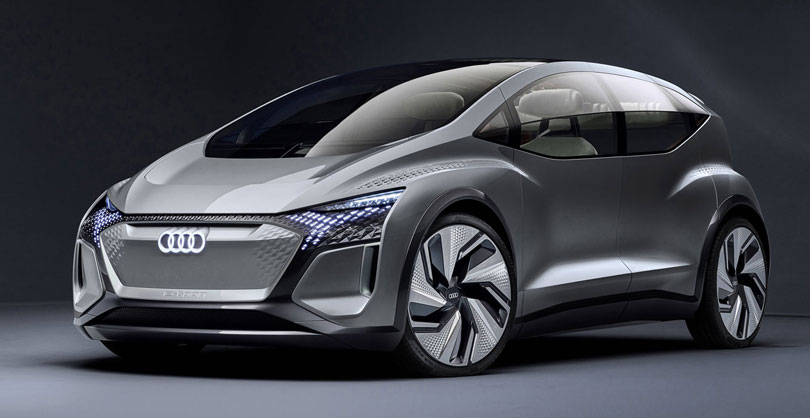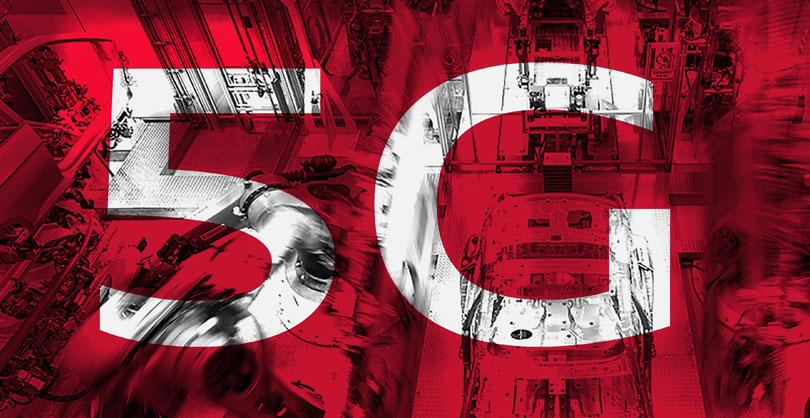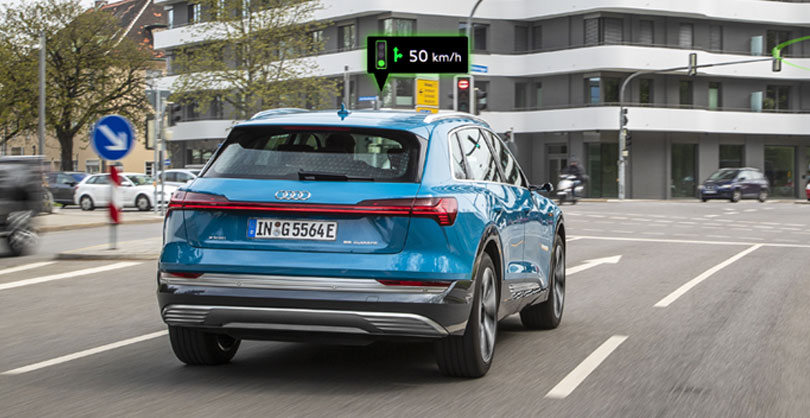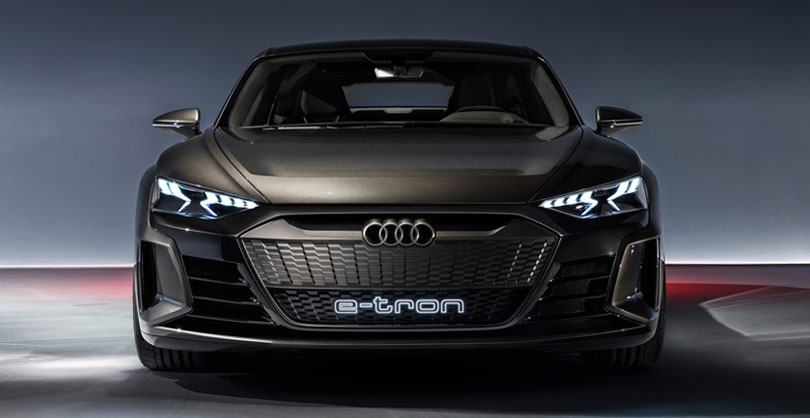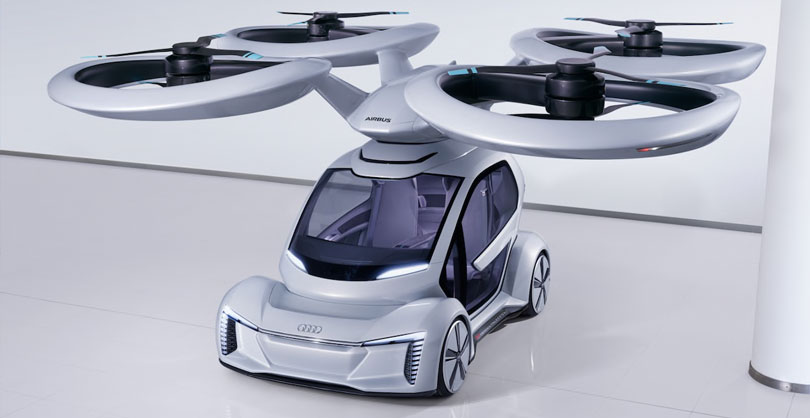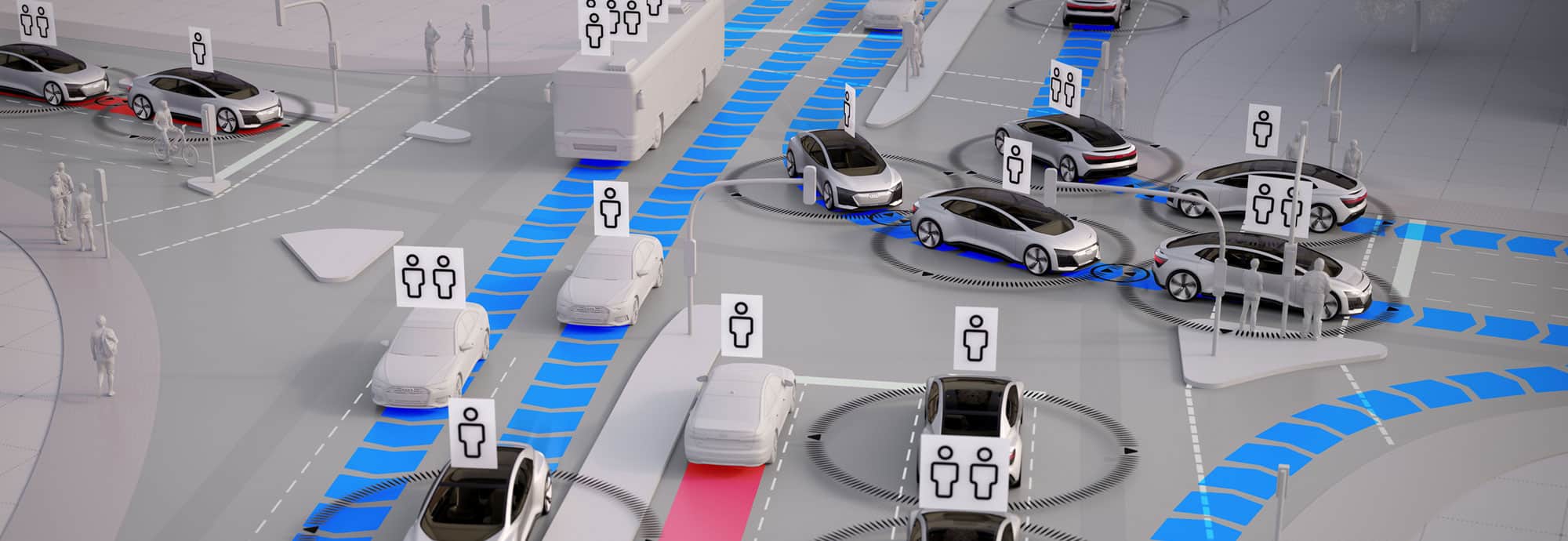
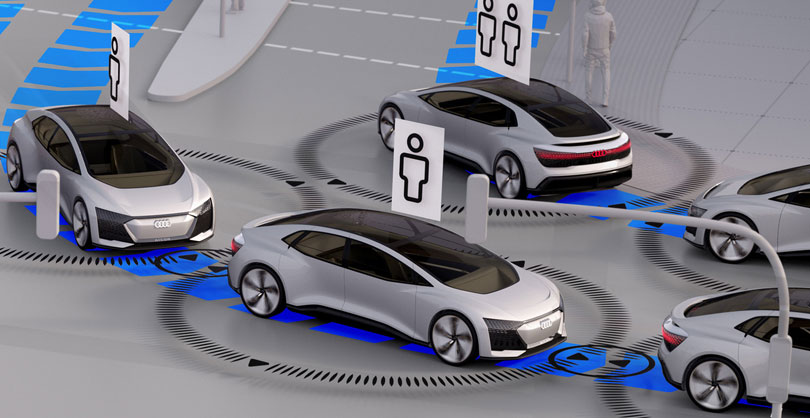
AUDI STUDY: NO CONGESTION IN THE CITY OF THE FUTURE
>> The research project “25th Hour – Flow” simulates the traffic flow in Ingolstadt
>> The future of urban mobility: people will have more time, cities more space
>> Melanie Goldmann, Audi Trend Communication: “Autonomous cars, services, and networked infrastructure reduce traffic jams and road space”
How much time will we save in a city with autonomous cars, ride sharing and smart traffic management? Answers are given by the Audi study “25th Hour – Flow”. Partnering with the traffic experts at the Karlsruhe Institute for Technology (KIT) and the Munich consultancy MobilityPartners, the research simulated the future of mobility in Ingolstadt/Germany. According to the study, a lasting reduction in travel times can be achieved on a typical commute: in fully automated traffic by one third, even though over ten percent more people are on the road. The prerequisite is that the trend towards sharing takes hold.
Fleets of self-driving cars will help to solve traffic problems in cities in the long term. These benefits become even more apparent when coupled with smarter traffic management and a higher occupancy rate, i.e. increasing the average number of persons per car. If this figure rises moderately from 1.1 to 1.3 persons, because more people share a car, there is no more congestion during rush hour. In a fully automated, networked traffic system, more people (+12%) can be transported much more quickly (-33%) in commuter traffic (see animation).
Connected, automated and shared vehicles also provide cities with new opportunities to use and reallocate space to improve urban quality of life. For example, the study found that the incorporation of fully autonomous vehicles could repurpose one traffic lane in a four-lane network and dedicate this new space to pedestrians or bicycles instead of vehicles. The study takes into account that, with an increasing number of autonomous cars, more senior citizens and children without a driver’s license have access to mobility, and convenient robo-taxis will compete with local public transportation.
“The results suggest that autonomous cars, mobility services, and networked infrastructure can significantly reduce congestion and road space. At the same time, more young and old people can travel safely and conveniently. In this way, the quality of life in cities will be improved dramatically. These findings encourage us to continue our investment in the future: in self-driving cars such as the Audi Aicon, services like Audi on demand, or networked technology such as Audi traffic-light information,” says Melanie Goldmann, head of Trend Communication at Audi.
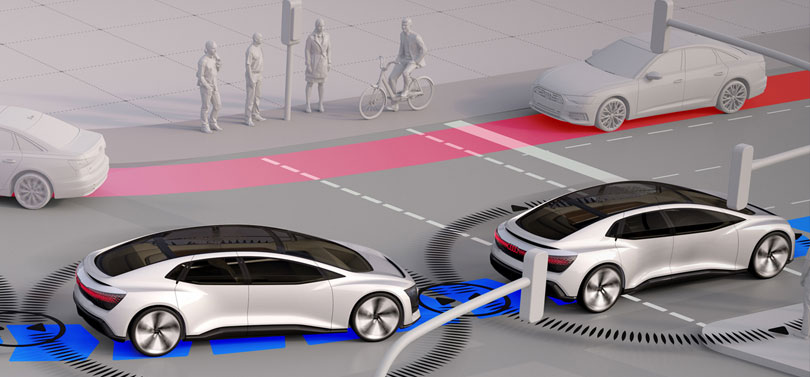
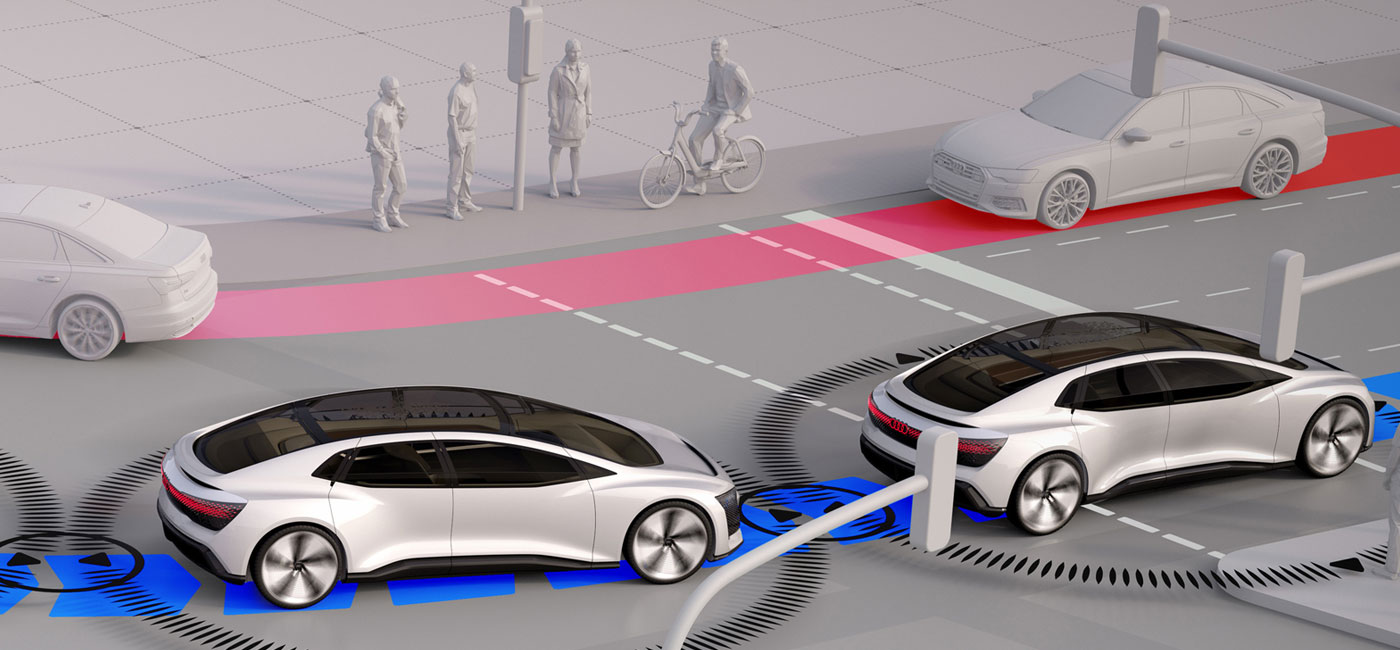
How much time will we save in a city with autonomous cars, ride sharing and smart traffic management? Answers are given by the Audi study “25th Hour – Flow”. Partnering with the traffic experts at the Karlsruhe Institute for Technology (KIT) and the Munich consultancy MobilityPartners, the research simulated the future of mobility in Ingolstadt/Germany. According to the study, a lasting reduction in travel times can be achieved on a typical commute: in fully automated traffic by one third, even though over ten percent more people are on the road. The prerequisite is that the trend towards sharing takes hold.
Fleets of self-driving cars will help to solve traffic problems in cities in the long term. These benefits become even more apparent when coupled with smarter traffic management and a higher occupancy rate, i.e. increasing the average number of persons per car. If this figure rises moderately from 1.1 to 1.3 persons, because more people share a car, there is no more congestion during rush hour. In a fully automated, networked traffic system, more people (+12%) can be transported much more quickly (-33%) in commuter traffic (see animation).
Connected, automated and shared vehicles also provide cities with new opportunities to use and reallocate space to improve urban quality of life. For example, the study found that the incorporation of fully autonomous vehicles could repurpose one traffic lane in a four-lane network and dedicate this new space to pedestrians or bicycles instead of vehicles. The study takes into account that, with an increasing number of autonomous cars, more senior citizens and children without a driver’s license have access to mobility, and convenient robo-taxis will compete with local public transportation.
“The results suggest that autonomous cars, mobility services, and networked infrastructure can significantly reduce congestion and road space. At the same time, more young and old people can travel safely and conveniently. In this way, the quality of life in cities will be improved dramatically. These findings encourage us to continue our investment in the future: in self-driving cars such as the Audi Aicon, services like Audi on demand, or networked technology such as Audi traffic-light information,” says Melanie Goldmann, head of Trend Communication at Audi.
